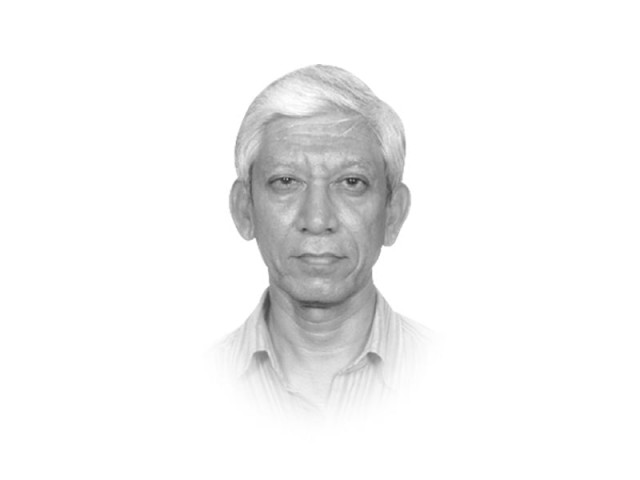The flight from Rajshahi
They wanted to leave before sunrise, afraid of being shot by West Pakistani troops who'd shoot anyone moving out.

The flight from Rajshahi
While in Rajshahi, the family, a typical middle-class clan, along with Anwer, its young guest from Lahore, somehow continued their vulnerable existence, constantly worried by the news of the fighting and mayhem which was approaching them with each passing day. By mid-April, many people had already left the town to take refuge in nearby villages and some of them crossing the Indian border which was not far from Rajshahi. Members of the family were going through a most difficult time trying to decide whether to stay or leave, when an acquaintance, Kalam, managed to convince them that staying in Rajshahi would mean sure destruction, that the advancing army was certain to kill all young men and destroy all buildings. So they decided to leave.
Anwer Shahid’s description of the mass flight for survival is as effective as good fiction of the realistic kind. A group of some 35 men, women and children crossed the dam on the half-dried Padma in a dark, cold night to go to an unknown destination. The confusion about which direction to take was as thick as the darkness of night. They first went east towards Prem Talli, a village some 15 miles away, where the cook of one of the families came from. On the way they ran into other fleeing groups with whom they got into an instant relationship of mutual suspicion. Everyone was afraid that those coming towards them must be the rebel East Pakistan Rifles (EPR) personnel and that the West Pakistani army men must be chasing them. With much difficulty they arrived at a ghat, but there was no sign of a boat which they could board to cross over. They wanted to leave that place before sunrise, as they were afraid of being shot down by West Pakistani soldiers who would shoot anyone moving out of towns taking them as EPR rebels. A boat with the capacity of about 70 persons was brought from afar, but since several fleeing groups were waiting to cross, it was filled in an instant and left. It didn’t come back before another hour, but the narrator’s group did not find a place in it this time either. Therefore, they had no option but to stay in the wilderness in biting cold.
The group was attacked by robbers armed with gandasas but they were driven away with the help of a pistol which one of the men was carrying. The next morning, the boats started their to-and-fro trips and it was in the third trip that the group found a place. The people travelling with them were a strange, mixed lot: an old woman carrying her wet, unbearably smelly goats, two tough men in prisoners’ uniform, young purdah-observing girls standing very close to unknown men who could not have as much as seen their faces had the life remained normal. When they found themselves on the other side, they started walking towards Khaderpur, a nearby village. But then someone told them that it was more than seven miles from the river. They were too tired to walk that long. They came to know that the Indian border was only a mile-and-a-half away and that there was a refugee camp there to receive the fleeing people. So they decided to board bullock carts to go to the camp located in India. There were many such bullock carts carrying women, old men and children, while young, able-bodied men — many of them armed — were walking in the direction of the border.
While the families were almost dead with hunger, thirst and tiredness, young men were happy to have saved their lives, even at the cost of everything that they once owned in various towns. Anwer, however, was feeling differently. He was moving towards a country which had always been the target of his ideological hatred and, being a non-Bengali, he could not expect to be safe on that side of the border. He was extremely tired and burdened with fear and danger, but as a young man he could not board a bullock cart and had to walk as other young men were doing. On their way they came across a field of melons. Each of them picked a couple of melons, ate its eatable part and fed the rest to the bullocks. They did not realise at which point they crossed into India, but when the carts stopped at a small waterbody, they found themselves on the other side. The nearest town was called Behrampur, but the village with the refugee camp was only a mile away. The family had constructed a fiction about Anwer in order to save his life. It was decided that he was a cousin of Imdad, his name was Shahdat Husain, his father had died long time back, and he had spent the past many years running his small restaurant in London. With his new identity, Anwer hoped to survive as a West Pakistani in an Indian refugee camp meant for Bengalis fleeing the onslaught of the West Pakistani army.
Published in The Express Tribune, January 28th, 2012.














COMMENTS
Comments are moderated and generally will be posted if they are on-topic and not abusive.
For more information, please see our Comments FAQ